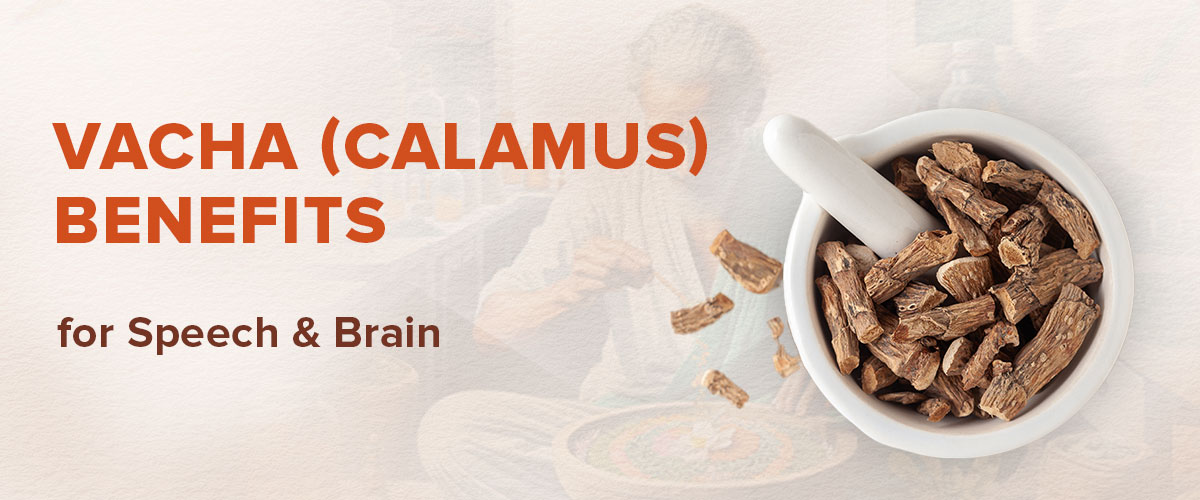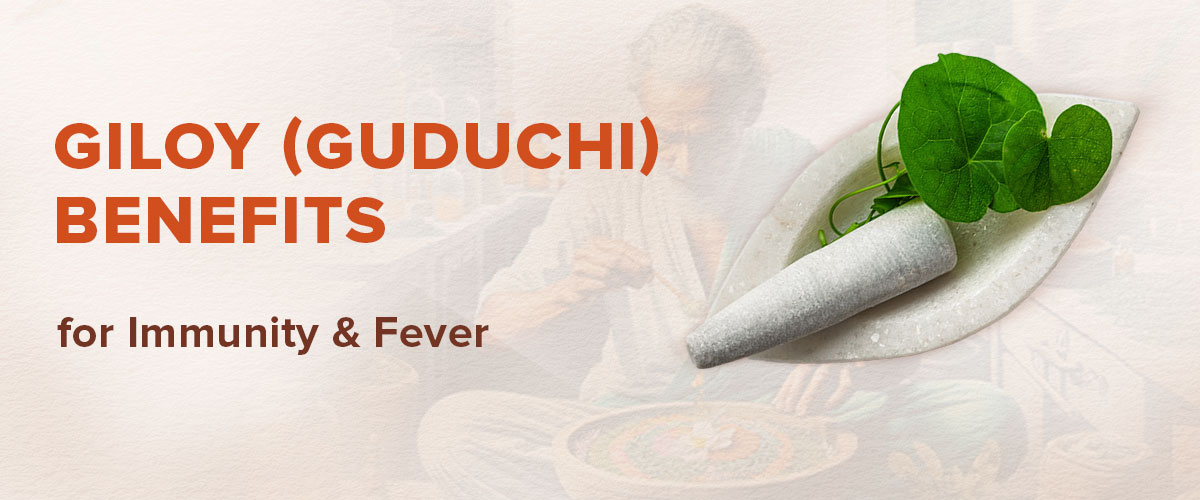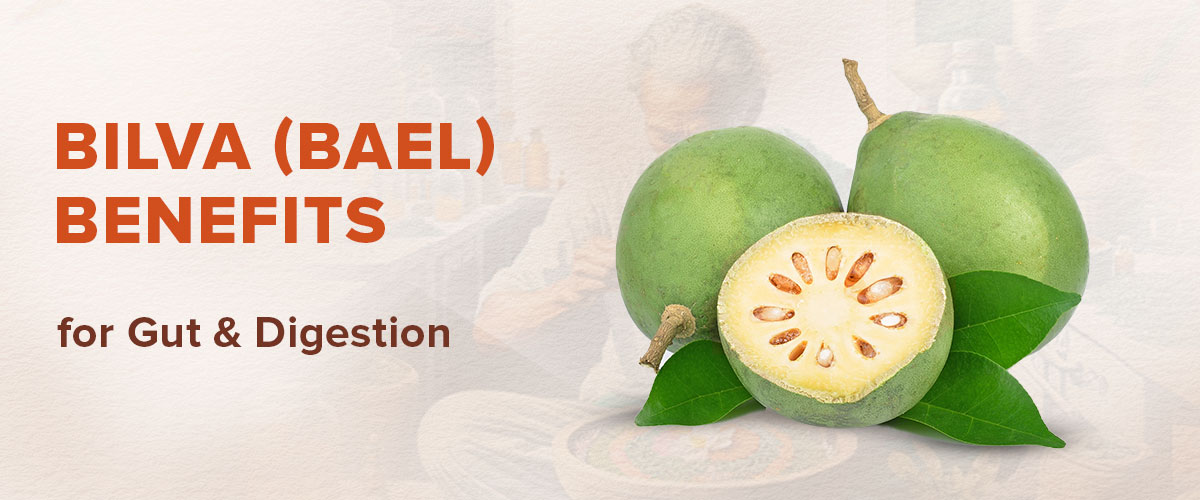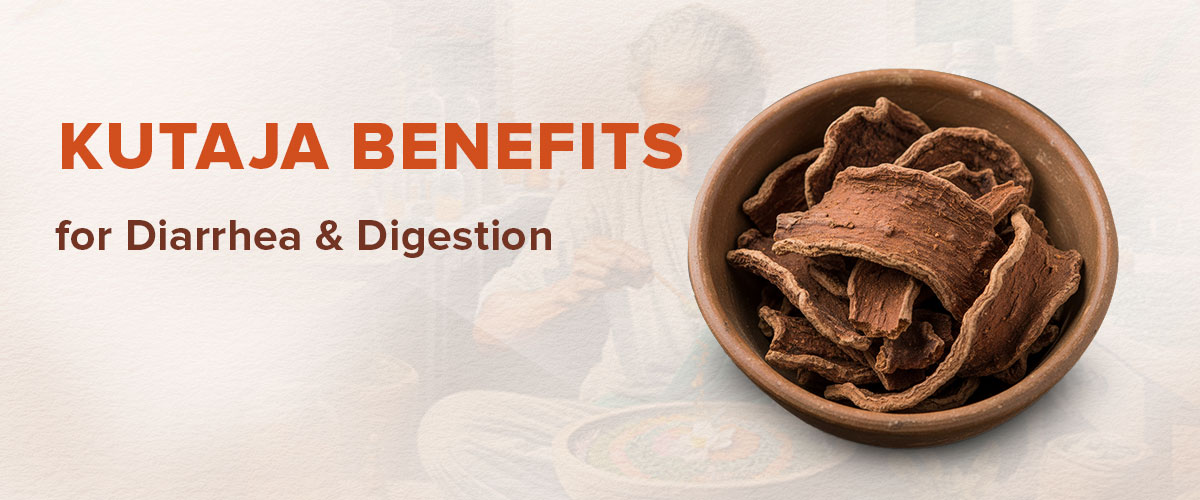Vacha (Calamus): Benefits, Uses, and Healing Properties

Vacha, whose botanical name is Acorus calamus, is also known as sweet flag or calamus in English, and classically as Vacha in Sanskrit. This aromatic herb has been used in Ayurvedic medicine for centuries, prized for improving speech clarity, calming the nervous system, and boosting digestion.
Now, researchers have validated many of these traditional claims. In a recent clinical study with children, those who took Vacha rhizome churna showed remarkable memory improvement.
As you move further into this blog, you’ll discover more about vacha benefits, understand why vacha powder benefits matter, and learn how these benefits can fit into your wellness routine.
What is Vacha & Its Ayurvedic Properties?
Vacha, or Acorus calamus, is a herb that Ayurveda has treasured for its unique nature. In Ayurveda, every herb is described using four key traits. Let’s understand them for Vacha clearly:
- Taste (Rasa): Vacha tastes strong (Katu) and sour (Tikta). This mix helps clear toxins, helps with digestion and lightens heaviness.
- Qualities (Guna): It is light (Laghu) and sharp (Tikshna). This means it works quickly, goes deep into your tissues, and doesn't make you feel heavy.
- Strength (Virya): Its ushna virya means that Vacha is hot. This heat helps reduce too much mucus, gets your blood flowing better, and wakes up a tired body and mind. This can be good for you if you often feel cold, bloated, or anxious.
- Effect after digestion (Vipaka): Vacha has a strong aftertaste (Katu Vipaka) right after being digested. This keeps your digestive fire burning, toxins from building up, and your gut healthy as time passes.
Vacha Benefits for Your Health
Vacha acts as a natural medicine that helps your mind, body, and overall health. Let's take a look at the main vacha churna benefits, using both Ayurvedic knowledge and modern research. This will help you understand why it is still important today.
1. Helps with Digestion and Hunger
Ayurvedic View: Vacha is known in Ayurveda for its Deepan (appetiser) and Pachan (digestive) effects. This means it boosts your digestive fire, helps break down food properly, and stops you from feeling heavy or bloated. If you often feel full too quickly or have trouble with gas, vacha churna may help.
Modern View: Research shows that Vacha can lower acidity and even keep the stomach lining safe from bacteria, like H. pylori. It might also help with stomach pain and gas.
2. Helps You Remember Things and Stay Focused
Ayurvedic View: Vacha is a Medhya herb for memory, speech clarity and calming the mind based on Ayurveda. A common Ayurvedic tip for speech and mental focus is to take Vacha with honey.
Modern View: Research shows that Vacha contains antioxidant properties which protect brain cells from harm. This may assist you to remain focused and remember things better when you are stressed.
3. Opens Breathing Passages
Ayurvedic View: Vacha loosens mucus, clears blocked airways, soothes coughs as it acts as an expectorant and a Vata-Kapha balancer.
Modern View: Vacha's anti-inflammatory properties can help relax muscles in your airways, reducing breathing issues in case you have a cold or the flu.
4. Promotes Healthy Skin
Ayurvedic View: With its Tikta (bitter) and Tikshna (sharp) properties, Vacha clears skin infections and supports wound healing. Vacha paste gives your skin a healthy glow.
Modern View: Vacha has antimicrobial properties and could kill fungi and bacteria reducing skin issues.
5. Helps with Joint Pain and Swelling
Ayurvedic View: Vacha relieves stiffness, pain and swelling in joints by balancing Vata.
Modern View: When used as an oil or paste, Vacha’s anti-inflammatory compounds can lessen arthritis pain and facilitate better movement.
These vacha powder benefits explain why this herb has been used for so long. This is a great example of how ancient knowledge and new research can work together to help you stay healthy.
Vacha for Specific Health Conditions
Vacha is famous for helping with digestion, memory, and joint health, but it can also be used in other ways that you may not know about. Here are some vacha benefits for specific health situations.
Stuttering and Clear Speech
Ayurveda says that Vacha is good for speech. If you or someone you know has trouble stuttering, a traditional way to help them speak more clearly and with more confidence is to take a little vacha churna with honey.
Stress and Mental Fatigue
Do you feel mentally tired after working or studying for a long time? Vacha is a natural way to refresh your mind. It relaxes your nervous system, helps you think clearly and can ease restlessness or anxiety.
Swelling and Water Retention
Vacha is a mild diuretic which could help your body get rid of excess water. Vacha powder could help with puffiness or swelling in your hands or feet naturally.
Ear and Tooth Problems
People use Vacha paste for toothaches and healthy gums because of its antimicrobial nature. Ayurveda recommends warm Vacha oil to ease ear pain but this must always be discussed with a Jiva doctor first.
Other Infections like Syphilis
Several Ayurvedic texts mention that Vacha helps with many sexually transmitted infections such as syphilis. This is primarily because of the cleansing action of vacha, but it should be used only after talking to a Jiva doctor.
Anxiety and Restlessness
Vacha can help you relax your mind if stress or anxiety keeps you up at night. It works like a natural nerve tonic, calming your body and mind and making you feel better.
Pain in the Joints and Arthritis
Are your joints swollen or painful? When applied to the skin, vacha oil can lower inflammation and ease the pain of arthritis, making it easier to move around every day.
Bad Memory and Focus
Vacha powder helps your brain by sharpening your memory and calming your nerves when you have trouble remembering things or staying focused on your work. Using it regularly can help you stay mentally sharp and focused.
Gas and Problems with Digestion
Vacha can help if you often feel bloated or have gas after meals. It helps your digestion, makes you feel less bloated, and makes you feel light. This is one of the most famous vacha health benefits for everyday life.
Hair Lice
If lice keep coming back, especially in kids, you can gently rub Vacha oil on the scalp. It is a safe, natural way to get rid of lice without using harsh chemicals.
Who Should Use Vacha?
Vacha can help a lot of different people, but how you use it may depend on your age and what you need. Here's how vacha helps different groups.
Vacha for Women
If you're stressed out, tired, or low on energy, Vacha can help you relax and remember things better. Women who often feel bloated or have trouble digesting food may also find that vacha churna helps keep their stomachs light and comfortable. Ayurveda also uses it to help with emotional balance and focus, especially when hormones are changing.
Vacha for Kids
For children, Vacha is traditionally used in very small, carefully guided doses, often to support speech clarity or reduce abdominal gas. A common practice includes applying a mild paste of Vacha root with water or oil on the child’s stomach to ease bloating. Internal use for kids should only be done under the advice of a Jiva Ayurveda expert.
Vacha for Older Adults / Seniors
Vacha can be very helpful for older adults because it helps with memory, joint pain, and digestion. It keeps the mind active, helps with movement, and stops feeling heavy or gassy after meals. Vacha powder benefits can also help keep your breathing clear by balancing excess mucus, which is common as you get older.
Can Vacha Be Taken with Other Medicines?
If you already take modern medicines, you should be careful before adding Vacha to your routine. When you mix vacha with some drugs, some of its benefits, like calming the nervous system or lowering blood pressure, can become too strong. For instance, if you take sedatives, antidepressants, or blood pressure medications, Vacha may make you more sleepy, dizzy, or lower your blood pressure even more.
Vacha could also make stomach acid stronger, so taking it with antacids might make them work less well. People who take calcium channel blockers or cancer drugs should also be careful because this can change how these drugs work.
Before you mix Vacha with any prescription or over-the-counter medicine, it's best to talk to a Jiva-certified doctor. This way, you can get the best of vacha benefits without having to worry about getting sick.
Is Vacha Safe? Who Should Avoid It?
Vacha is safe and helpful if used properly. But as every powerful herb, using an excessive amount or too long could be bad for you.
Side Effects of Vacha
Typical unwanted side effects of using too much vacha include:
- Upset stomach/too much acid.
- Headache, especially if you have a high Pitta already.
- Tremors or shaking.
- Too much sleepiness.
- Seizures (rarely).
- In long-term high doses, kidney issues might occur.
Stop taking Vacha right away if you notice any strange symptoms, like pain, dizziness, or anything else. Always consult a Jiva certified practitioner before starting or changing your dose.
Vacha vs Other Ayurvedic Herbs
Vacha shares some qualities with other well-known Ayurvedic herbs, but each one has different strengths. Let us how it compares so you can decide when it’s the better choice for your needs.
Vacha vs Brahmi
|
Feature |
Vacha (Acorus calamus) |
Brahmi (Bacopa monnieri) |
|
Best Use |
Speech clarity, digestion, clearing mucus, boosting mental alertness |
Enhancing memory, calming the mind, reducing anxiety |
|
Nature (Heating/Cooling) |
Heating (Ushna) |
Cooling (Sheeta) |
|
Effect on Mind |
Stimulates and sharpens thinking, supports speech improvement |
Calms and nourishes the mind, supports long-term memory |
|
Effect on Body |
Improves digestion, reduces bloating, removes toxins |
Balances stress, supports restful sleep |
|
Dosha Balance |
Balances Vata and Kapha, can increase Pitta if overused |
Balances all three doshas, especially Pitta and Vata |
Vacha vs Shankhpushpi
|
Feature |
Vacha (Acorus calamus) |
Shankhpushpi (Convolvulus pluricaulis) |
|
Best Use |
Quick mental stimulation, speech issues, digestive sluggishness |
Gradual improvement in memory, focus, and emotional balance |
|
Nature (Heating/Cooling) |
Heating (Ushna) |
Cooling (Sheeta) |
|
Effect on Mind |
Sharpens and energises the mind quickly |
Calms the mind, reduces overthinking and stress |
|
Effect on Body |
Removes mucus, stimulates appetite, aids digestion |
Supports heart health, balances hormones |
|
Dosha Balance |
Best for Vata-Kapha imbalance |
Suitable for all doshas, especially Pitta and Vata |
Conclusion
Vacha shows that nature has answers for a lot of your daily health problems, like how to boost your focus, improve your digestion, or make you feel lighter and more energetic. It works in a gentle but strong way, like many Ayurvedic herbs, to bring things back into balance instead of just covering up symptoms.
But even the very best herb must be utilised properly for your body type and health. This is the reason you must consult a Jiva Ayurveda doctor for effective and safe results. They can help you pick the right form, dose, and length of time so that you get all the benefits of vacha without any side effects.
For personalised advice on any health concern you may be facing, call our Jiva experts today at 0129-4264323.
FAQs
- What are the healing properties of calamus?
Calamus, also called Vacha, is known for helping with digestion, making speech clearer, calming the mind, and getting rid of mucus in the airways. It also helps with memory and concentration.
- What are the medical uses of Vacha?
Vacha can reduce bloating, keep your mind clear, and help you breathe better. It can also be used on the outside of the body to improve skin health and joint comfort.
- What are the side effects of calamus root?
If taken too much or without an expert’s advice, vacha can make you feel sick, give you headaches (especially if you have high Pitta), make you sleepy, and in rare cases, cause kidney problems. Always consult a Jiva doctor before taking vacha and take the right amount only.
- What does Ayurveda say about calamus root?
Vacha is the name for calamus root in Ayurveda. It is a Medhya herb that helps clear the mind and is good for balancing Vata and Kapha doshas.
- Is lemongrass the same as calamus?
No, lemongrass and calamus are not the same plant at all. Calamus is a root that is used as medicine, and lemongrass is a fragrant grass that is mostly used for flavour and smell.
- Is it okay to use Vacha every day?
You can use Vacha every day, but only in the right amount. Most people only need a small pinch of vacha churna with honey or water. If you have a Pitta body type, taking too much or for too long may cause side effects like headaches or acidity. Before using it regularly, always talk to an Ayurvedic doctor.
- What is the difference between Vacha churna and Vacha powder?
There is no such difference between them. "Churna" is just the Sanskrit word for powder. It's the same thing whether you call it vacha churna or vacha powder. Ayurveda uses both words, and both give you the same benefits when you take the right amount of vacha powder.



 Prev
Prev




























